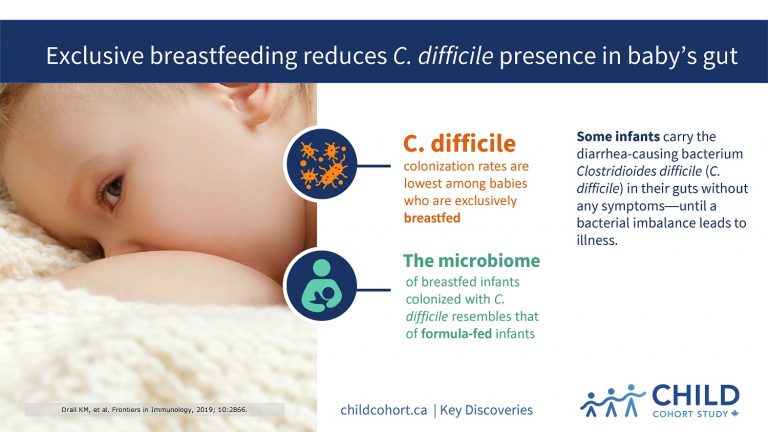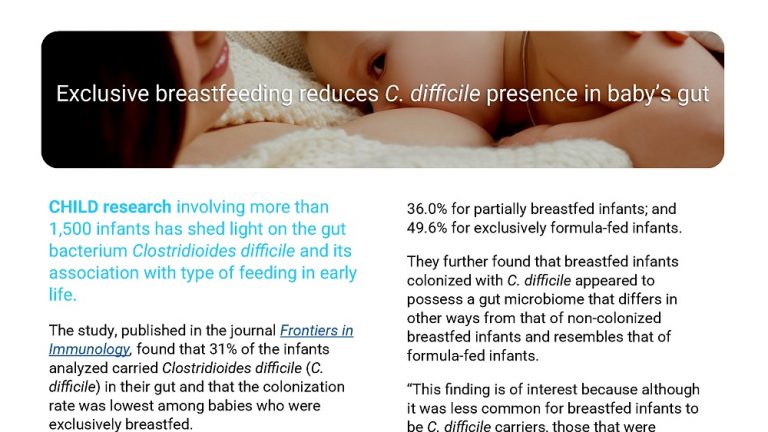Exclusive breastfeeding reduces C. difficile presence in baby’s gut
CHILD research involving more than 1,500 infants has shed light on the gut bacterium Clostridioides difficile and its association with type of feeding in early life.
The study, published in the journal Frontiers in Immunology, found that 31% of the infants analyzed carried Clostridioides difficile (C. difficile) in their gut and that the colonization rate was lowest among babies who were exclusively breastfed.
“Some infants carry the diarrhea-causing bacterium C. difficile in their guts without any symptoms. However, when the levels of gut bacteria become imbalanced, this particular bacterium can multiply, causing illness and increasing the susceptibility to chronic disease later in childhood,” said senior author Dr. Anita Kozyrskyj (University of Alberta).
“We were interested in finding out the prevalence of C. difficile in the CHILD cohort and associations with the type of infant feeding.”
The researchers found that C. difficile colonization rates differed between feeding groups: 22.6% for exclusively breastfed infants; 36.0% for partially breastfed infants; and 49.6% for exclusively formula-fed infants.
They further found that breastfed infants colonized with C. difficile appeared to possess a gut microbiome that differs in other ways from that of non-colonized breastfed infants and resembles that of formula-fed infants.
“This finding is of interest because although it was less common for breastfed infants to be C. difficile carriers, those that were colonized had fewer beneficial microbes such as Bifidobacteria and immune proteins like secretory IgA,” said first author Kelsea Drall, an M.Sc. graduate from the University of Alberta.
“This suggests that there is value in directing future research efforts toward understanding the molecular mechanisms that drive or result from C. difficile colonization to better understand the role of this bacteria and its microbial community in childhood diseases such as asthma.”





